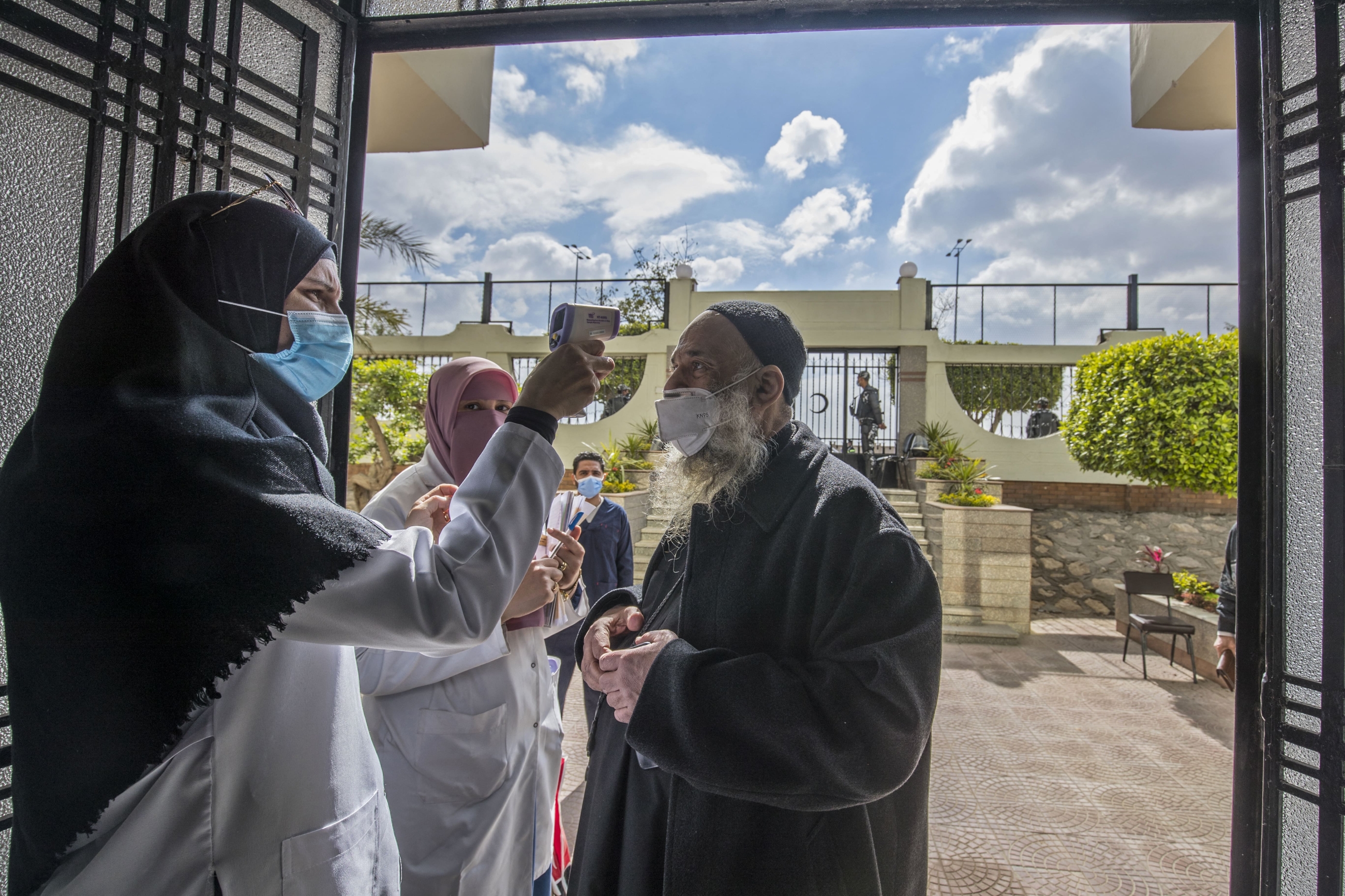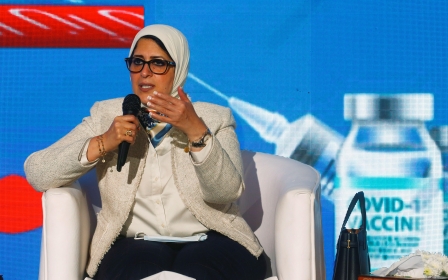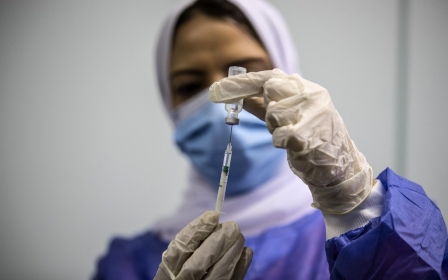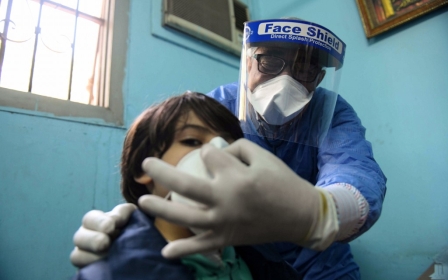Egypt: Covid-19 vaccine rollout 'failing' marginalised people

Egypt’s Covid-19 vaccine rollout has failed to prioritise at-risk and marginalised populations, according to a new report by Amnesty International.
Prisoners, refugees, migrants and people living in informal urban settlements were among those impacted by a "flawed" national strategy, the rights group said on Tuesday.
"Egypt’s vaccine rollout has been blighted by the authorities’ lack of clear strategy and transparency leading to delays and backlog, as well as failure to reach out to those most in need or to tackle vaccine hesitancy through targeted awareness campaigns,” said Philip Luther, Amnesty’s Middle East and North Africa research director.
“We call on the government to ensure that priority groups are, in fact, prioritised, and that the distribution plan is inclusive, accessible and non-discriminatory.”
'Flawed' rollout
New MEE newsletter: Jerusalem Dispatch
Sign up to get the latest insights and analysis on Israel-Palestine, alongside Turkey Unpacked and other MEE newsletters
Amnesty described Egypt’s vaccine rollout and distribution, which was announced on 24 January, as “deeply flawed”.
It found that although online registration initially opened for health workers, older people and those with pre-existing health conditions, individuals from these priority groups experienced long waiting times and were often unable to get appointments.
The report cited several cases of young people with no pre-existing conditions being contacted for vaccines before older relatives and at-risk people. One 72-year-old had registered for the vaccine on 20 March, but had still not been contacted for an appointment.
Egyptian authorities were also accused of failing to spread public awareness about access to the jab, and address vaccine hesitancy, particularly among poorer and rural communities.
Doctors, activists and residents in impoverished governorates in Upper Egypt and informal urban settlements around Greater Cairo said that people were unaware of the vaccine rollout. In several instances, local health workers were raising awareness in the absence of government-sponsored publicity.
Refugees and asylum seekers were also not targeted with outreach programmes, while undocumented migrants were excluded from the vaccine campaign altogether.
Political prisoners denied vaccine
In May, Egyptian officials announced an innoculation campaign inside prisons, starting with 5,000 older and chronically ill prisoners.
However, several political prisoners across nine prisons in Egypt have yet to be given access to the vaccine, according to relatives and lawyers who spoke to Amnesty.
Abdelmonim Aboulfotoh, a 69-year-old former Egyptian presidential candidate, has not received a dose despite his age and pre-existing health conditions, his lawyer said.
The Egyptian Initiative for Personal Rights (EIPR) last month launched a lawsuit against the health ministry for failing to vaccinate political detainees.
“Access to healthcare is a human right. All detainees should have access to Covid-19 vaccines,” said Luther.
“Withholding vaccinations as means of punishing political dissidents or those arbitrarily detained for exercising their right to freedom of expression would be a flagrant human rights violation.”
Key workers at risk
On 3 June, authorities announced that one million tourism workers had been vaccinated, as part of a government drive establishing vaccination centres in hotels across tourist hubs.
However, similar drives have yet to be announced to target essential workers at high risk, including those working in the transport and food industries.
Last month, the Egyptian Medical Syndicate announced that at least 500 doctors had died from the virus since the pandemic began in 2020.
The syndicate's secretary-general, Osama Abdel Hay, complained on 20 April about the slow pace of the immunisation of health-service workers and warned against "major perils".
Egypt has recorded a total of 281,031 cases to date, with at least 16,148 deaths.
Experts have said that official numbers of coronavirus cases only reflected a fraction of real cases, as polymerase chain reaction (PCR) testing in Egypt had been relatively low and private tests were not included in government statistics.
The real death toll from the virus was likely to be much higher than the official figures, with many victims of the disease dying at home, and many deaths not registered as caused by Covid-19.
Middle East Eye delivers independent and unrivalled coverage and analysis of the Middle East, North Africa and beyond. To learn more about republishing this content and the associated fees, please fill out this form. More about MEE can be found here.




